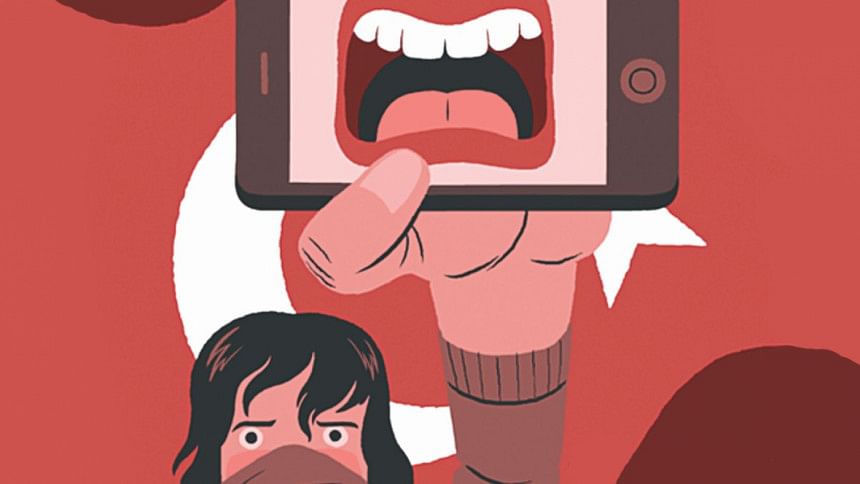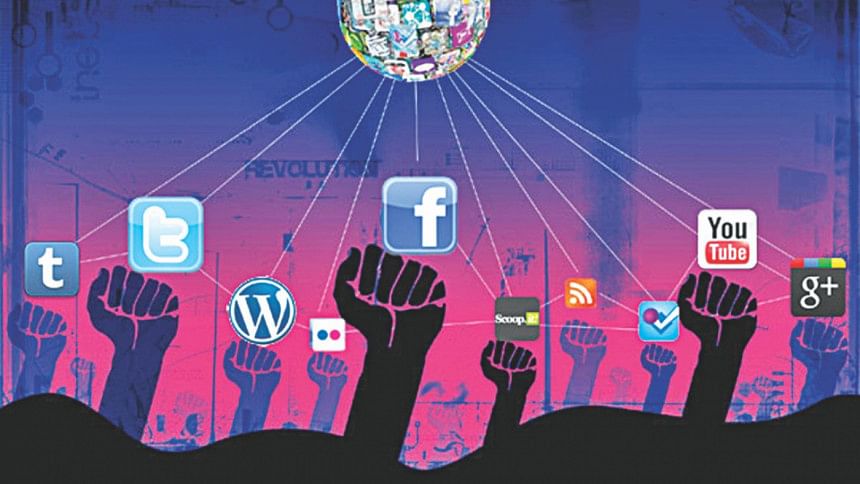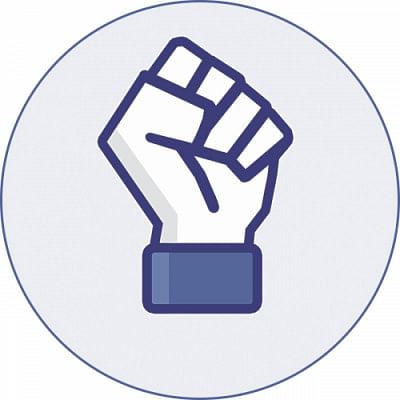Social Media Activism: How Powerful is that #Hashtag?

Most of us are already aware of what social media activism is. It can be simply put as movements (often about social justice) in the social media sphere. That article your friend shared, to raise awareness for marginalised communities? Social media activism. That petition your friend made to hold the Government accountable for something wrong? Social media activism. That one status about Nepal that your friend once posted? Well, I'm not sure.
The line between what can be considered social media activism and what cannot is pretty murky. So, it isn't all that surprising that people are always ready to question whether social media activism is even activism at all. To be fair, that's a legitimate concern. But it's safe to say that in the year 2015 when so many of us live online, social media activism does have an impact. Activism is defined by achieving results, so does social media activism fulfil that criterion?

Yes and here's how. Back in February, three Muslim students were shot dead in Chapel Hill, NC, USA. Initially, no major US media picked it up; in fact even a local media outlet took over 7 hours before finally reporting the incident. It was only after Twitter was buzzing with tweets demanding accountability that major news outlets like CNN and BBC reported the incident. This may not seem like a "big deal" at face value, but denying the three Muslim individuals their right to be represented as the victims of unjust violence as they were, the Western media –often criticised as "Islamophobic" in their approach – further continued to dehumanise them. Similar is the #BlackLivesMatter campaign that has become a platform where the systematically oppressed African Americans express their frustrations and grievances.

In fact, if there's any reason why the internet is still neutral today, it is because of social media activism. This all may just seem like the only reaper of the lovely fruits sowed by social media activism is the West, but in the last few months Bangladesh itself has seen the influence of true social media activism.
The news of the Pohela Boishakh incident where women and a girl as young as 10 were sexually harassed at TSC, Dhaka University spread all over Bangladeshi internet community like wildfire. And as decent humans would, all those who were made aware of the incident wanted justice for the victims. Despite being often referred to as the "Goldfish Nation" – this was an incident that wasn't swept under the rug that easily. There was uproar from the citizens for the Government to hold these sexual assaulters accountable. And though it may have begun to seem like the "trend" of talking about sexual assault was being forgotten, it stayed alive on people's timelines, through shared stories, links and pictures.

Neither was the police brutality against the peaceful protestors of Dhaka University overlooked or forgotten. For once, because of social media activism, the information was everywhere and everyone knew. At present, despite the initial denial of the sexual harassment, it's because of the evidence provided and circulated on the internet that the authorities have called for the arrest of the assaulters.
The major advantage of social media activism is how it continues to provide a voice for the public, rather than having them depend entirely on other media outlets. The issue is though that as easily as news can spread, it can as easily be blocked.
As mentioned initially, despite all the good it has done, there are some legitimate reasons to question social media activism. The first and foremost instance of the failure of social media activism that comes to mind is #StopKony2012. The aforementioned campaign had everything that makes it difficult for social media activism to be taken seriously. Instead of creating awareness, the online think pieces may just oversimplify an extremely complicated issue and provide no real information or plan of action.
Furthermore, Bangladesh isn't quite the tech-literate country. Despite the apparent pro-internet initiatives, many Bangladeshis are not aware of proper social media usage. Even though they are on Facebook, they can't be expected to read every think piece. Or even any, really. Thus, the focus group of Bangladeshi social media activism mostly limits itself to the middle class and the upper class, further limiting the impact.

However, the internet is still quite a weapon to wield. It is one platform that makes it possible to hear the actual voice of the public, first hand. So, we can all thrive to be more responsible on the social media regarding activism. A few things I would recommend before any of us dive into the world of social media activism are:
Always Check Sources: Secondary sources are always a bad idea and unreliable sources too. Before you begin to promote a story/incident, make sure they're not coming from a secondary or unreliable source.
Not be a Part of the Mob: Anyone who's ever been on Tumblr would know how much of a bad idea this is. Don't let others decide what you should be mad about; think for yourself.
Prioritise: When a series of unfortunate events continue to happen, it's difficult to figure out what you should focus your social media energy on. A good way to tackle this is by prioritising, based on importance and urgency. For instance, since the earthquake in Nepal was a global incident, more news outlets were talking about it.

Not Participate Solely for Self-satisfaction: It's difficult not to when we're all seeing the world from only our perspectives. But it's not about our guilt.
Stay Safe: Always be careful of what you say on the internet.
The last thing to remember is to always be cautious of petitions. They don't work the way we want them to. There was once a petition to ban Justin Bieber from the US, so it would make sense why authorities may have stopped taking them seriously. But there are still other means of raising awareness, and calling for protests, or sharing a plan of action. Statuses don't help. But awareness does.

 For all latest news, follow The Daily Star's Google News channel.
For all latest news, follow The Daily Star's Google News channel. 



Comments